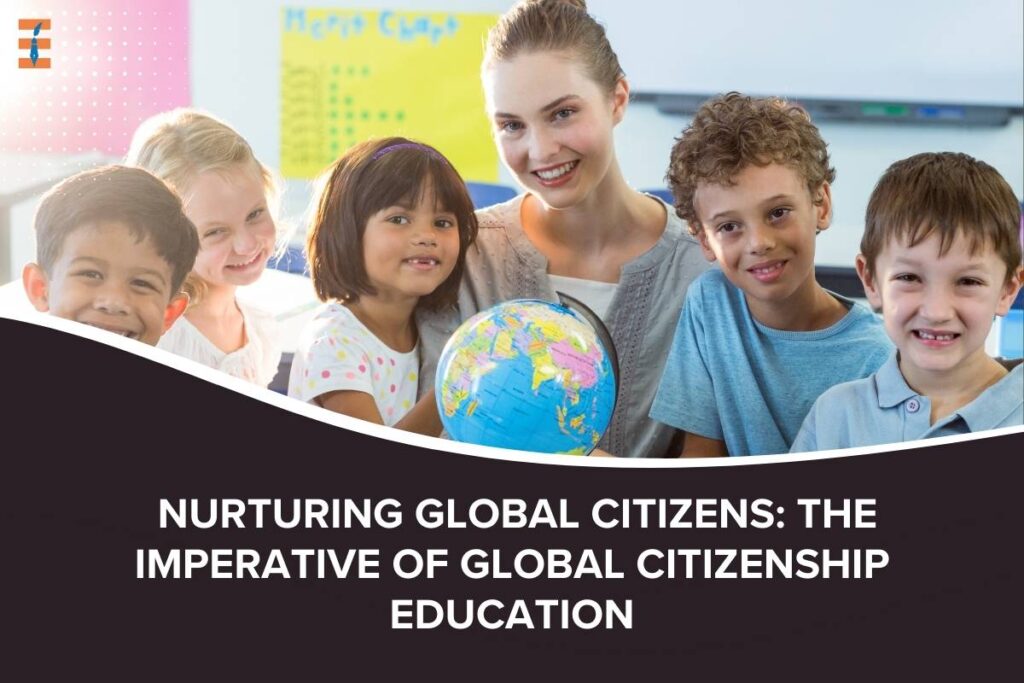In an increasingly interconnected world, the concept of citizenship transcends national borders. As our societies become more intertwined through trade, technology, and communication, the notion of global citizenship emerges as a critical framework for understanding our collective responsibilities and fostering a sense of belonging to a global community. Global Citizenship Education (GCE) plays a pivotal role in equipping individuals with the knowledge, skills, and values necessary to navigate the complexities of our globalized world. This article explores the significance of GCE in shaping informed, empathetic, and proactive global citizens.
Understanding Global Citizenship Education
Global Citizenship Education encompasses a broad spectrum of learning experiences aimed at cultivating awareness of global issues, promoting intercultural understanding, and fostering a sense of ethical responsibility towards the planet and its inhabitants. At its core, GCE seeks to empower individuals to critically engage with complex global challenges such as poverty, inequality, environmental degradation, and human rights violations.
Key Components of Global Citizenship Education
1. Critical Thinking and Inquiry Skills

GCE encourages individuals to question assumptions, analyze diverse perspectives, and evaluate evidence pertaining to global issues. By honing critical thinking skills, students can better understand the root causes of global challenges and formulate informed opinions.
2. Intercultural Competence
In an interconnected world characterized by diversity, intercultural competence is essential for effective communication and collaboration across cultural boundaries. GCE promotes respect for cultural differences, empathy towards others, and the ability to navigate diverse cultural contexts with sensitivity and openness.
3. Social Responsibility and Action
Beyond awareness and understanding, GCE emphasizes the importance of taking meaningful action to address global issues. Whether through community service, advocacy, or sustainable lifestyle choices, individuals are encouraged to contribute positively to their local and global communities.
4. Sustainability Literacy

With environmental sustainability emerging as a pressing global concern, GCE equips individuals with the knowledge and skills needed to promote sustainable development practices and mitigate the adverse impacts of climate change.
Implementing Global Citizenship Education
Effective implementation of GCE requires a multifaceted approach that integrates into formal education systems, informal learning environments, and community-based initiatives. Schools play a central role in GCE by incorporating global perspectives into curricula, fostering cross-cultural exchange through student exchange programs, and providing opportunities for service-learning and community engagement.
Furthermore, non-governmental organizations (NGOs), civil society organizations, and grassroots initiatives play a crucial role in complementing formal education efforts through the development of GCE resources, workshops, and advocacy campaigns. By collaborating with local communities and stakeholders, these organizations can amplify the impact of GCE and promote active citizenship at the grassroots level.
Challenges and Opportunities
Despite its potential benefits, GCE faces several challenges, including resource constraints, curriculum integration barriers, and the need for teacher training and professional development. Moreover, in an era marked by rising nationalism and xenophobia, there may be resistance to embracing global perspectives in education.
However, these challenges also present opportunities for innovation and collaboration. By leveraging digital technologies, online platforms, and global networks, GCE can reach a broader audience and facilitate cross-border dialogue and collaboration. Moreover, partnerships between governments, educational institutions, NGOs, and the private sector can pool resources and expertise to scale up GCE initiatives and drive systemic change.
The Role of Global Citizenship Education in Building a Better World

At its core, GCE is about nurturing responsible and engaged global citizens who are equipped to address the complex challenges facing our world. By fostering empathy, critical thinking, and a sense of shared humanity, GCE lays the foundation for a more inclusive, equitable, and sustainable future.
In an era of rapid globalization and interconnectedness, the imperative of GCE has never been greater. By investing in GCE and prioritizing global perspectives in education, we can empower individuals to become agents of positive change in their communities and contribute to building a more just and peaceful world for all.
Conclusion
Global Citizenship Education is not merely an educational concept but a transformative force that has the potential to shape the future of our planet. By equipping individuals with the knowledge, skills, and values needed to navigate our interconnected world, GCE fosters a sense of belonging to a global community and empowers individuals to become active participants in shaping a more sustainable and equitable future. As we confront the complex challenges of the 21st century, investing in GCE is not just an option but a moral imperative for building a better world for generations to come.
FAQs about Global Citizenship Education:
1. What is Global Citizenship Education (GCE), and why is it important?
Ans: GCE focuses on developing skills and values needed to understand and tackle global challenges, promoting empathy, intercultural understanding, and active citizenship.
2. How does Global Citizenship Education differ from traditional education?
Ans: GCE integrates global perspectives into curricula, emphasizes critical thinking about global issues, and nurtures skills like intercultural competence and social responsibility.
3. What are some practical examples of Global Citizenship Education?
Ans: Examples include discussing global issues in classrooms, organizing cultural exchanges, engaging in service-learning projects, and participating in advocacy campaigns.
4. How can educators integrate Global Citizenship Education into their teaching practices?
Ans: Educators can integrate GCE by incorporating global perspectives into curricula, using real-world examples, facilitating discussions, and providing collaborative opportunities.
5. What are the challenges in implementing Global Citizenship Education, and how can they be overcome?
Ans: Challenges include resource constraints and resistance to change. Solutions include advocating for policy changes, fostering partnerships, providing teacher training, and using innovative methods.
Also Read: 21st Century Teaching Methods Transforming Education

